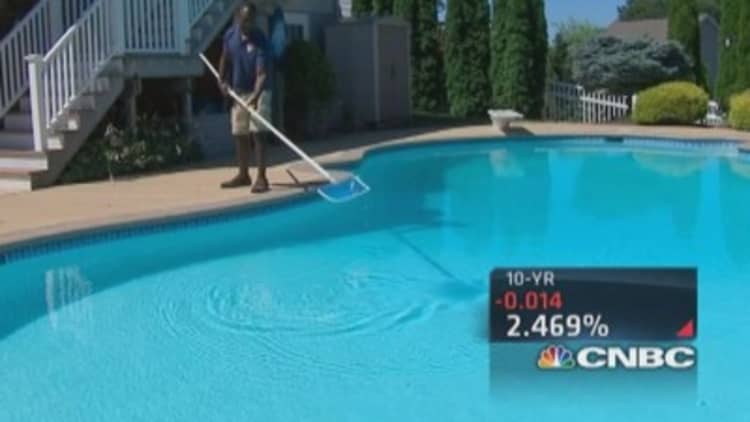
One of the biggest barriers to a robust recovery in the housing market is a lack of supply. There are simply not enough homes listed for sale to meet the demand—and part of that is because a growing number of home buyers are not selling their previous homes.
"As people are starting to move, they're also turning into landlords by choice. And that is definitely having a dent in the inventory numbers," said Nela Richardson, chief economist at Redfin, a real estate brokerage. "Our agents are seeing people come through their door with the cash in hand to buy that next place. A lot of them obviously don't need that equity in their former home, or they're able to tap some of it out and then use it to buy the next place."
It's a strange new irony in housing. Lack of supply is driving prices higher, which is pricing some demand out and driving up rental demand.
For others, however, the rise in home prices is providing useful equity to buy another home while still holding on to their old home, which is then providing lucrative rental income.
Read MoreBuying new? The difference $1,000 makes
"It was surprisingly easy," said Shelly Burley, who considers herself something of an accidental landlord.
She and her husband Keon Burley are now busy decorating their new home in suburban Baltimore. It is four times the size of the downtown row house in which they used to live, but which they now rent out.
The Burleys owe about $30,000 more on the downtown home's mortgage than the home is currently worth. That made selling it a problem.
"I knew that it was going to be a challenge because the market in the city has really dipped, and I bought in the height of the market in 2006," Shelly Burley said. "It really wasn't worth it to take that $30,000 hit, when we could get someone to rent the property, have them pay down the mortgage and get to a place where we could either get out for the same price or eventually maybe make a profit off of it, if we rent long enough."
There are no hard numbers as to how many buyers are holding on to their previous properties, but there is plenty of anecdotal evidence, especially as rental demand and rent rates continue to surge.
Read MoreMillennials are dragging down homeownership
Of course not everyone has the financial wherewithal to buy a home while owning another, but a growing number do, according to Richardson.
"The person who didn't buy during the rise and fall of the housing market, the person who has been in their home for a while, who is able to refinance into a record low rate, and so because of that very low re-financing, they have built home equity up over the past five years, the person who may be advanced in their career. They can take that next step without pulling (equity) from their former home," she said.
The Burleys were able to put 20 percent down on their second home, even without equity from their first.
Read MoreWhat can $1 million get you in a reclaimed home
"We just cut out all the non-essentials, and we were able to stockpile the payment quicker, so we could move out and move to this lovely home," said Keon, who enjoys throwing parties by their new pool.
Finding a renter for the old home was even easier.
"I put it on Craig's list and had people responding to the ad instantly," Shelly said.
Keon still worries about the rental and the potential costly repairs.
"I was probably more stressed than my wife," he admitted. "When I'm renting a house I can't be there all the time to make sure that they're doing the right things to maintain the house, so I get a little worried about that."
Read More Closing costs: Where does your state rank?
While the Burleys will be on the hook for repairs, they can deduct rental expenses from their taxes, according to the Internal Revenue Service. Those expenses include not just repairs, maintenance and utilities, but taxes and insurance on their property, as well as mortgage interest paid to their lender.
Of course they do have to declare the rent payments as income.
—By CNBC's Diana Olick


